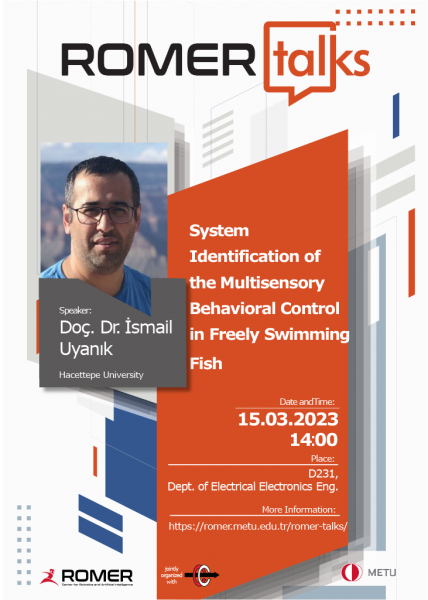Title: System Identification of the MultiSensory Behavioral Control in Freely Swimming Fish
Abstract: The central nervous system (CNS) processes sensory information obtained through various sensory structures in the body. These include signals with a wide variety of spatiotemporal features, such as different speed and propagation patterns. In this stream of multimodal sensory information, CNS must decide how it should integrate these signals to construct a unique representation of the environment during multisensory behavioral control. Our research focuses on system identification of the dynamics of multisensory behavioral control in freely swimming fish using custom-tailored experimental setups. We adopt control-theoretic approaches to identify how the CNS (re)-weights different sensory modalities under different sensory conditions. Our goal is to generate models that capture the dynamics of online, real-time sensory re-weighting mechanisms adopted by these fish.
Bio: Ismail Uyanik is an Assistant Professor of the Department of Electrical and Electronics Engineering at the Hacettepe University, Ankara, Turkey. He was a postdoctoral researcher in the Laboratory of Computational Sensing and Robotics (LCSR) at Johns Hopkins University from July 2017 to July 2019. He received his Ph.D. degree in Electrical and Electronics Engineering from Bilkent University in May 2017. Throughout his Ph.D. studies at Bilkent, he developed model-based and data-driven system identification methods for the analysis and control of legged locomotion. He also received his B.Sc. and M.Sc. degrees from the same department in June 2009 and August 2011, respectively. His current research focuses on discovering the principles of multisensory behavioral control in animals by developing novel techniques in system identification theory, neuroscience, and robotics. Dr. Uyanik is also a recipient of the Marie Sklodowska-Curie Actions Individual Fellowship.

